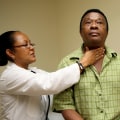The goal of preventive health care is to identify and address potential health issues before they become severe, thereby maintaining an individual's health and reducing the burden of disease on both the person and the healthcare system. This proactive approach involves regular check-ups, screenings, immunizations, and health education to promote a healthy lifestyle. It emphasizes the importance of early detection and intervention to manage potential risks. Furthermore, creating a conducive environment for wellness is essential. For instance, organizations might opt to lease gym equipment to facilitate physical fitness for their members or employees, reflecting the broader preventive ethos of promoting health through active lifestyles.
Preventive medicine is the practice of promoting preventive health care to improve patient well-being. Ultimately, the goal is to prevent illness, disability and death.
Preventive care
is what you do (before you get sick) to stay healthy. So why should you go to the doctor when you're healthy? The simple answer is that preventive care can help you stay healthier and, as a result, lower your healthcare costs.These goals extend to individuals, their families, communities and the entire population (Sloane, 200. As risk takers, they provide the payment models and the influence and incentives that can affect the acceptance of chronic disease prevention services. Now that you know how important preventive care is, how can you practice it? Here are some of the things you should do to maintain your health and prevent future problems. Tertiary prevention that focuses on reversing, stopping or delaying the disease is only in the clinical setting.
Prevention objectives are based on disability and death from chronic illness; costly terminal interventions for a small part of the population; and proven and cost-effective preventive measures that benefit the majority of the population. Therefore, the same service may or may not be considered and billed as preventive care, depending on your health situation. If you are not sure what preventive care you need, contact your primary care clinic or doctor. Vaccines are perhaps the most popular type of preventive care because they are easy and extremely effective.
Chronic diseases are the leading cause of death and disability worldwide and are linked to rising health costs. In addition, most health insurance plans will cover preventive care costs in full, even if you haven't met your deductible, making it a much more attractive option than splitting out thousands of dollars for treatments. Some examples of relevant references include the CTFPC Red Book, which includes recommendations for lifelong detection and prevention. Barriers include cost, not having a primary care provider, living too far away from providers, and lack of knowledge about recommended preventive services.
However, if additional follow-up care is needed, such as another procedure to remove additional growths or any treatment if cancer is detected, it is not considered preventive, so you may have to pay some out-of-pocket costs. It's much less expensive to practice preventive care than to seek help only when there's a problem. Clinical prevention strategies exist for many chronic diseases; these strategies include intervening before the disease appears (primary prevention), detecting and treating the disease at an early stage (secondary prevention), and controlling the disease to slow or stop its progression (tertiary prevention).







